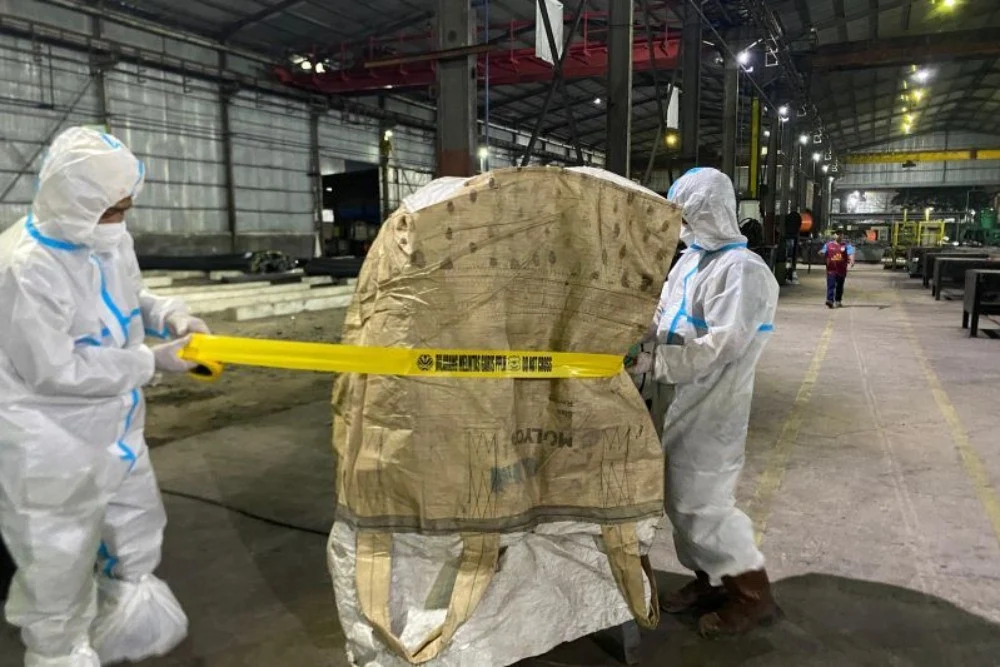Authorities in Indonesia have officially escalated the Cikande radioactive contamination case to the criminal investigation stage after detecting traces of cesium-137, a highly toxic radioactive isotope, in several industrial facilities in Banten province.
The Ministry of Environment and Forestry (KLHK) confirmed that at least 22 factories operating within the Modern Cikande Industrial Estate have been affected by the contamination. Preliminary tests suggest that the radioactive material originated from improper handling of metal scrap at a steel processing plant.
According to officials, the contamination level in some areas exceeded safety thresholds, prompting immediate restrictions on access and mandatory safety inspections for all surrounding businesses.
Government Escalates Legal Action
Minister of Environment Hanif Faisol Nurofiq announced that the case has moved from preliminary inquiry to criminal investigation (“penyidikan”), meaning there is sufficient evidence of potential wrongdoing. Law enforcement agencies under Bareskrim Polri will now handle the case in coordination with the National Nuclear Energy Agency (Bapeten) and BRIN.
Authorities are investigating possible violations of environmental safety and hazardous waste regulations. If proven, the company responsible could face criminal charges and civil penalties for environmental destruction and negligence.
Hanif emphasized that legal action will target both the corporate entity and individuals in management who authorized or ignored unsafe waste processing. “Accountability must be clear, not just at the corporate level, but also at the decision-making level,” he stated.
Decontamination and Health Monitoring
Following the discovery, a radiation control and cleanup operation began across Cikande’s industrial zones. Teams equipped with protective gear have been collecting contaminated soil, debris, and equipment for secure storage.
The Ministry reported that two of the twenty-two sites have been successfully decontaminated, while others remain under restricted access. Radioactive waste has been transferred to a secured holding facility under Bapeten’s supervision.
Health screenings conducted on local workers revealed nine cases of mild exposure to cesium-137, though officials claim all are recovering with no severe symptoms. Nonetheless, experts warn that long-term monitoring is necessary to track potential effects on health and the environment.
Public Concern and Environmental Impact
Local residents have expressed deep concern over the incident, fearing contamination could spread to nearby communities, farmland, and groundwater. Several NGOs have urged the government to disclose radiation data transparently and provide compensation for those affected.
Environmental analysts warn that cesium-137 poses a lasting risk, as it can persist in soil for decades and enter the food chain through crops and water. The incident has renewed calls for tighter regulations on hazardous waste management and stricter enforcement in industrial areas.
Authorities have pledged to continue testing air, soil, and water samples around Cikande and neighboring villages. Officials also plan to introduce a long-term monitoring program to ensure that contamination levels remain under safe limits.
The escalation of this case marks one of Indonesia’s most serious environmental investigations in recent years, highlighting the urgent need for stronger oversight of industrial waste handling and radiation safety protocols.


